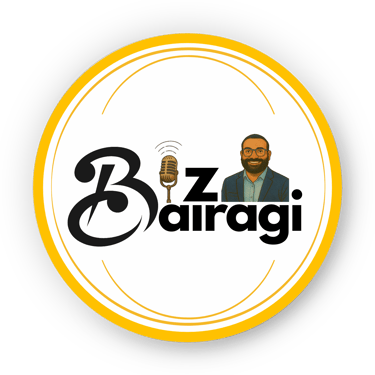Income Tax Deductions List - Deductions under Section 80C, 80CCC, 80CCD & 80D for FY 2024-25 (AY 2025-26)
Tax planning is an essential aspect of financial management, and income tax deductions help individuals save taxes legally. The Indian Income Tax Act provides various deductions under different sections, including 80C, 80CCC, 80CCD, and 80D.
4/10/20252 min read


Tax planning is an essential aspect of financial management, and income tax deductions help individuals save taxes legally. The Indian Income Tax Act provides various deductions under different sections, including 80C, 80CCC, 80CCD, and 80D.
Here’s a detailed list of deductions available for the financial year (FY) 2024-25 (Assessment Year 2025-26).
1. Section 80C - Deductions up to ₹1,50,000
Section 80C is the most used tax-saving provision that allows deductions for various investments and expenses, up to a maximum limit of ₹1.5 lakh per year. Eligible deductions include:
Life Insurance Premium: Premium paid for self, spouse, or children.
Public Provident Fund (PPF): Contributions made to a PPF account.
Employees’ Provident Fund (EPF): Employee contributions to EPF.
National Savings Certificate (NSC): Investment in NSC is eligible for deduction.
Tax-Saving Fixed Deposits: Fixed deposits with a 5-year lock-in period.
Sukanya Samriddhi Yojana (SSY): Deposits made for a girl child's account.
Tuition Fees: Fees paid for children’s education (maximum for two children).
Equity-Linked Saving Scheme (ELSS): Investments in ELSS mutual funds.
Home Loan Principal Repayment: Repayment of the principal component of a home loan.
2. Section 80CCC - Pension Plan Contributions
Deduction on contributions made to annuity pension plans of insurance companies.
The maximum limit under this section is clubbed with Section 80C (₹1.5 lakh combined).
3. Section 80CCD - Contributions to National Pension System (NPS)
80CCD (1): Employee/self-contributions to NPS up to 10% of salary (for salaried individuals) or 20% of gross income (for self-employed), within the ₹1.5 lakh limit of Section 80C.
80CCD(1B): Additional deduction of up to ₹50,000 for NPS contributions (over and above ₹1.5 lakh under 80C).
80CCD (2): Employer contributions to NPS (up to 10% of basic salary + DA) are deductible without the ₹1.5 lakh cap.
4. Section 80D - Deductions for Health Insurance Premium
Self, spouse, and children: Deduction up to ₹25,000 for health insurance premium.
Senior citizens (self/spouse/parents): Deduction up to ₹50,000 if the insured person is a senior citizen.
Preventive Health Check-up: Deduction of ₹5,000 (within the overall limits mentioned above).
Frequently Asked Questions
Can I claim deductions under both Section 80C and 80CCD(1B)?
Yes, you can claim up to ₹1.5 lakh under 80C and an additional ₹50,000 under 80CCD(1B) for NPS contributions.
Is there any tax benefit for senior citizens under Section 80D?
Yes, senior citizens can claim a deduction of up to ₹50,000 for health insurance premiums.
Can both parents claim deductions for their child’s tuition fees under Section 80C?
Yes, both parents can claim deductions individually for tuition fees paid, subject to the ₹1.5 lakh limit under Section 80C.
Are tax-saving fixed deposits covered under Section 80C?
Yes, 5-year tax-saving fixed deposits qualify for deductions under Section 80C.
Is life insurance premium paid for parents eligible for deduction under 80C?
No, only life insurance premiums paid for self, spouse, and children qualify under Section 80C.
Can I claim deductions for multiple insurance policies under Section 80D?
Yes, you can claim deductions for multiple health insurance policies within the specified limits.
Conclusion
Taking advantage of these income tax deductions can significantly reduce tax liability while ensuring financial security. Proper tax planning, along with investments in eligible instruments, can help taxpayers optimize their savings and future financial goals.
For professional tax planning and assistance, consult Proviconn, your trusted partner in financial compliance and advisory.
BizBairagi
Inspiring journeys of entrepreneurs shared through podcasts.
Connect
Engage
© 2025. All rights reserved.
